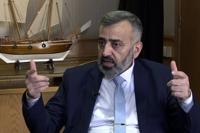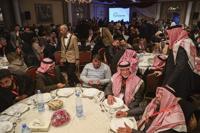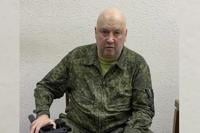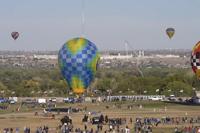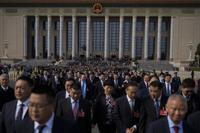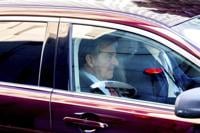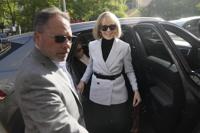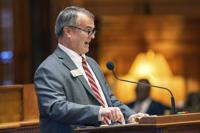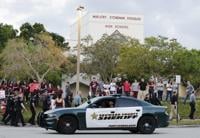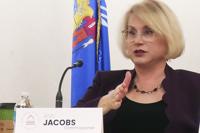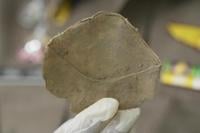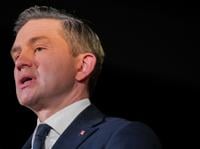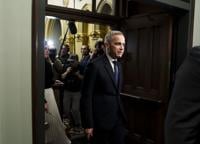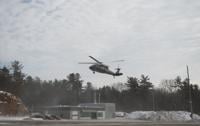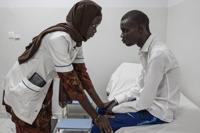DAMASCUS, Syria (AP) — A long-awaited national dialogue conference intended to help chart Syria’s political future after the fall of former President Bashar Assad kicked off Monday in Damascus.
The conference had been one of the chief pledges by , former rebels who took power in a military offensive but have since promised an inclusive political transition. Its results will be closely watched by both Syrians and the international community, including countries still weighing whether to lift sanctions imposed during Assad's authoritarian rule.
The main session will be held on Tuesday, with participants holding workshops to discuss transitional justice, the structure of a new constitution, reforming and building institutions, personal freedoms, the role of civil society and the country’s economy.
The outcome of the national dialogue will be nonbinding recommendations to the country’s new leaders.
Plans for the conference — which had been promised by the country’s new authorities in the immediate aftermath of Assad’s fall in a lightning rebel offensive in December — . The date of the conference was announced on Sunday, one day before it was to start.
Two days before that announcement, Hassan al-Daghim, spokesperson for the committee organizing the national dialogue, had said the date of the conference had not been set and the timing was “up for discussion by the citizens.” He also said the number of participants had not been determined yet and might range from 400 to 1,000.
On Monday, officials said 600 people had been invited. Al-Daghim called the conference a “historic event.”
“It’s something wonderful in itself for the Syrians to be able to speak their opinion without being afraid and without repression by security forces” as was the case under Assad's rule, he said.
Conference participant Iman Shahoud, a judge from Hama, said she considers the conference “the day of true victory, because you can see in front of you all the sects and components of the Syrian people are present, women and men."
“This is a day that the Syrian people have been waiting for a long time,” she said.
Some remain skeptical
“I don’t expect this conference to produce any results, to be honest," said Dalia Dalati, a public employee who was originally from Aleppo and displaced during .
Three months after the fall of Assad, Dalati said the economic and security situation remain tenuous and divisions are emerging among people, adding that she sees the country's new rulers as only focused on “trying to build its external relations, with the Gulf, with America, with Europe."
“Why should we care about the national conference when the most important things, security and safety, unfortunately, remain absent?” Dalati said.
Orthodox Archbishop Elia Tohme, one of the invitees, said it was “too early to judge” whether the conference was a meaningful chance for citizen input in the new order.
“We need to see the outcomes of the conference before judging its results,” he said. He added that he wants to see a “mechanism to follow up on the implementation of the recommendations” made after the dialogue sessions, “so that it’s not just a conference where we met and talked.”
After Assad was toppled, Hayat Tahrir al-Sham, or HTS, the main former rebel group now in control of Syria, set up an interim administration comprising mainly members of its “salvation government” that had ruled in northwestern Syria.
They said at the time that a new government would be formed through an inclusive process by March. In January, former HTS leader Ahmad al-Sharaa was named Syria’s interim president after a meeting of most of the country’s former rebel factions. The groups agreed to dissolve the country’s constitution, the former national army, security service and official political parties.
The armed groups present at the meetings also agreed to dissolve themselves and for their members to be absorbed into the new national army and security forces. Notably absent was the Kurdish-led Syrian Democratic Forces, which holds sway in northeastern Syria and which has not been invited to participate in the national dialogue.
The committee said Sunday that it had held more than 30 meetings across Syria’s provinces in which some 4,000 people participated in the runup to the conference “to ensure the representation of various components of Syrian society,” state-run news agency SANA reported.
It said participants had repeatedly called for a temporary constitutional declaration, an economic plan, the restructuring of government sectors, involving citizens in the management of institutions, and enhancing security and stability.
—�Ĕ�Ĕ
Associated Press journalist Abby Sewell in Beirut contributed to this report.


